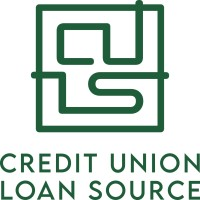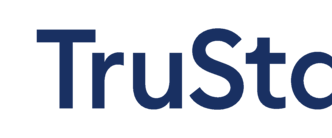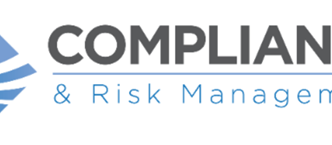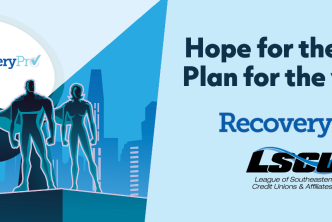As regulators shift focus, fully disclosed financial services still matter by Cheryl Lawson, EVP-Compliance Review
Following the recent passage of the Economic Growth, Regulatory Relief and Consumer Protection Act (S.2155) – which was intended to roll back some of the regulations of the Dodd-Frank law for smaller financial institutions – the Bureau of Consumer Financial Protection (Bureau) issued requests for information (RFIs) seeking comments on a range of topics related to its rulemaking authority. This follows multiple RFIs the Bureau has issued since the beginning of the year, under Acting Director Mick Mulvaney, to gauge reaction on how it is fulfilling its consumer protection function.
As a result, numerous industry groups, financial institutions, and individuals have weighed in with appeals for the Bureau to review its existing rules and rulemaking processes to possibly:
- streamline regulatory requirements;
- eliminate outdated or superfluous requirements;
- provide exemptions for certain institutions; and
- adopt rules that are transparent, fully consistent with the law and focused on promoting the financial interests of consumers.
So, while regulators continue to fine tune existing rules and consider ways to relieve the regulatory burden on smaller financial institutions, what steps can banks and credit unions take to maintain confidence that their overdraft solution is actually working in the best interest of their account holders? Especially since earlier this year – after extensive review and on-going input – the Bureau removed any mention of a new ruling on overdraft programs from its Spring Rulemaking Agenda.
Stick with strategies that have proven results
By adhering to long-established Best Practices, you can rest assured that your institution’s overdraft program is in lockstep with regulatory and consumer protection expectations. Importantly – from a service quality perspective – this will also ensure that you are providing account holders with a responsible solution for meeting their financial service needs.
- Commit to Full Disclosure
With busy lives that are focused on work, family and personal obligations, sometimes consumers have difficulty keeping track of their checking account balance. Providing a clear explanation of the benefits and responsibilities of your overdraft service should be an essential element of your discussion during account openings. But it doesn’t stop there.
Research tells us that in order to remember information, people need to hear it multiple times. This can be especially true when it pertains to something that isn’t top of mind every day. On-going communication about account status, overdraft program procedures and fees can ensure less account holder confusion and lead to more effective program usage.
And providing overdraft users with instructions on how to contact account service personnel – if they have questions about an account, or need information on additional programs and account management options – is a great way to demonstrate your commitment to their financial well-being.
- Use Policies That Are Fair and Balanced
Consumers rely on their bank or credit union to provide transparent, easy-to-understand and fairly priced service options. And regulators expect nothing less. You can increase account holder confidence in your service delivery and decrease your risk of potential examiner scrutiny when you implement overdraft program policies that prioritize excellent service over excessive fees, and empower your account holders to maintain control of their finances.
- Monitor Who’s Using the Program and How It’s Being Used
Maintaining accurate tracking of account activity is essential for effectively managing a successful overdraft strategy. For best results, program software should provide comprehensive, easy-to use reports that identify benchmarking data on usage trends, as well as insight into the program’s overall performance. This will allow you to make adjustments in areas where improvements can be made.
Another feature to look for is the ability to automatically distribute account holder communications materials to keep program users informed about their account activity. If your program does not offer this level of information, then you probably aren’t getting optimal results and your account holders aren’t getting a fully disclosed solution.
- Know How to Explain It
The secret sauce of an effective, fully compliant overdraft solution is having well-informed employees who possess a complete understanding of how your program works, as well as the ability and confidence to convey that message accurately to account holders.
Keep in mind, successful employee training programs take into account the scheduling, logistical and knowledge-level needs of your team. The availability of in-person and web-based training, as well as group and one-on-one sessions also ensures that all participants will benefit no matter what their learning style.
Partner with an expert for best overall outcomes
It all boils down to this. It’s much easier to remain between the lines of consumer protection expectations when you work with an overdraft program provider that maintains the highest level of compliance knowledge and an on-going awareness of what’s happening in the regulatory landscape.
And when the program’s processes, procedures and pricing are based on Best Practices, it becomes a valuable financial service that positively impacts an account holders’ ability to maintain financial stability, and a worry-free, compliant source of non-interest income for banks and credit unions.
ABOUT JOHN M. FLOYD & ASSOCIATES (JMFA)
For more than 38 years JMFA has been considered one of the most trusted names in the industry helping community banks and credit unions improve their performance and profitability. Whether it’s recovering lost revenue, uncovering savings opportunities, serving your account holders better, finding the perfect personnel fit or delivering a 100% compliant courtesy pay program, JMFA has the right solutions to help you not only meet, but exceed, your goals. We are proud to be a preferred provider among many industry groups. To learn more please visit www.JMFA.com or call (800) 809-2307.





